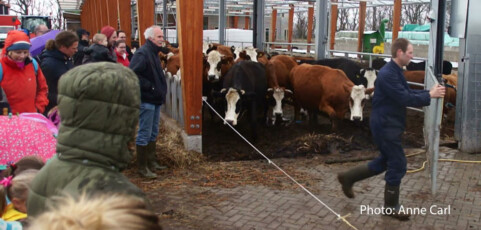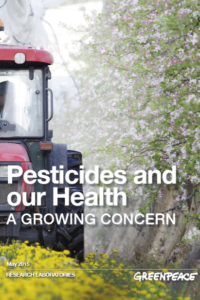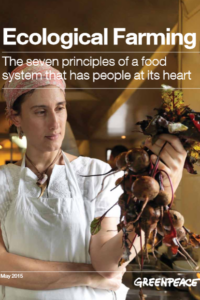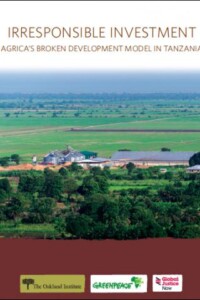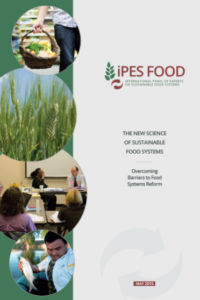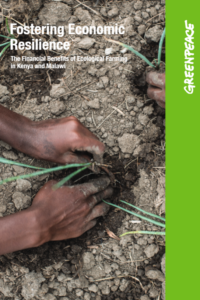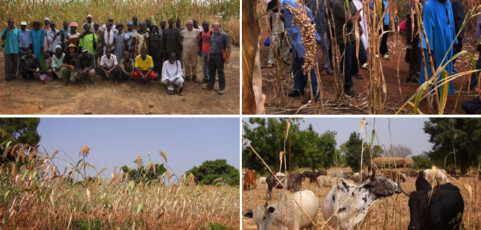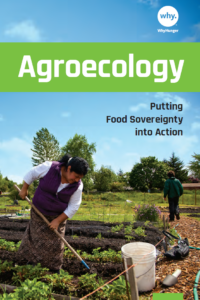Initiatives based on ‘short chains’ between farmers and consumers are slowly but surely gaining ground in the Netherlands, a country with a strongly industrialised food system. Looking for ecological, healthy, and fresh food, urban consumers are now creating innovative channels that support local and organic food producers.
Pesticides and our Health – a growing concern
Extract: The only sure approach to reducing our exposure to toxic pesticides is through a move towards a more long-term and sustainable approach to producing food. This will require legally-binding agreements to immediately phase-out all pesticides that are toxic to non-target organisms implemented at both national and international level.
Fundamentally changing our approach to farming involves a paradigm shift from industrial agriculture, which relies heavily on chemical additives, towards the full implementation of ecological farming as the only means of feeding the population and protecting the ecosystems we live in. Ecological farming is a modern and effective approach to farming that does not rely on toxic chemicals, and delivers healthy and safe food.
Ecological Farming – The seven principles of a food system that has people at its heart
We are living with a broken food system. It needs to be replaced urgently for the benefit of all people, and the planet. Greenpeace’s Food and Farming Vision describes what Ecological Farming means, and how it can be summarised in seven overarching, interdependent principles – based on a growing body of scientific evidence.
REPORT/Irresponsible Investment: Agrica’s Broken Development Model in Tanzania
Norfund, the UK aid department, and Capricorn are funding the British company Agrica’s industrial rice plantation in Mngeta, Tanzania, which is destroying the livelihoods of smallholder farmers, driving them into debt and impacting the local environment, according to new research by The Oakland Institute released in collaboration with Greenpeace Africa and Global Justice Now.
Agrica’s rice plantation in Tanzania has been used as a showcase project of the G8’s New Alliance for Food Security and Nutrition and the Southern Agriculture Growth Corridor of Tanzania.
The report, Irresponsible Investment – Agrica’s Broken Development Model in Tanzania, documents a catalogue of devastating impacts on local communities.
REPORT | The New Science of Sustainable Food Systems
Overcoming barriers to food systems reform.
Despite the mobilization of the political and scientific communities around various food systems issues, the task remains incomplete. There has been a tendency to address the problems as individual pieces of the puzzle, and to overlook the power relations that play a major role in shaping these systems. Read more
REPORT | Fostering Economic Resilience. The Financial Benefits of Ecological Farming in Kenya and Malawi
The evidence in this report suggests that it is more profitable for small-scale farmers in Africa to practise ecological farming that uses no chemical pesticides or fertilisers than it is to use chemicals. Presenting the results of new fieldwork in Malawi and Kenya, this report shows that farmers practising agroforestry (involving the use of natural ‘fertiliser trees’
instead of chemical fertilisers) and ‘Push-Pull’ technology, which eliminates the need for chemical pesticides) achieve higher incomes and yields than those practising chemical-intensive agriculture.
From slash and burn to ‘slash and mulch’
In semi-arid cropping regions of West Africa, fallow periods are getting shorter. As land becomes more scarce, farmers are not able to give their soils enough time to rest. This is leading to depletion of soil organic matter, severely threatening soil fertility and damaging soil structure. In the worst cases, crops hardly yield anything anymore. But this is not an option for family farmers. In Burkina Faso, some have found ways to restore their soils that have been dubbed ‘slash and mulch’. The improvement and spread of these techniques also proves the importance of partnerships between farmers and researchers in developing locally suited practices.
REPORT | Agroecology. Putting food sovereignty into action
Agroecology is an agricultural method based on the traditional knowledge of those who cultivate the land and a way of life. We believe its practice is critical to addressing global hunger and increasing communities’ access to basic resources such as land, water and seeds. The publication is not a technical guide to agroecology, rather it shares the knowledge and perspectives of 10 social movement leaders that are working to “scale up” agroecology around the world. It also highlights the social, political, cultural, nutritional and spiritual meanings of agroecology from within communities that have been negatively impacted by the commodification of food.

